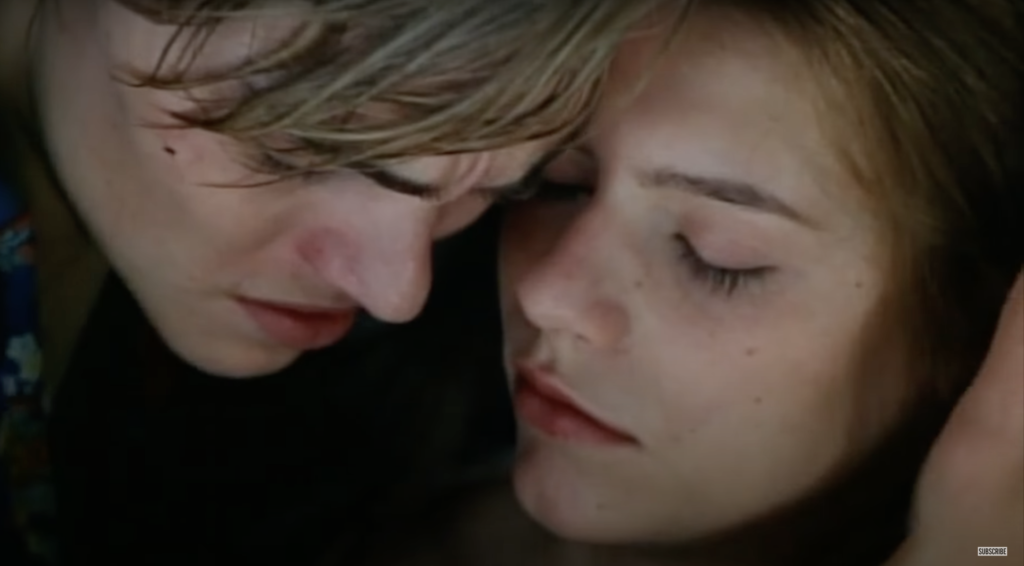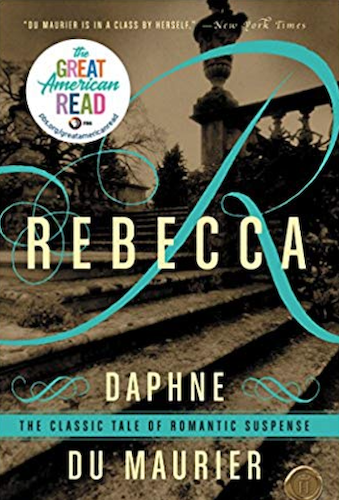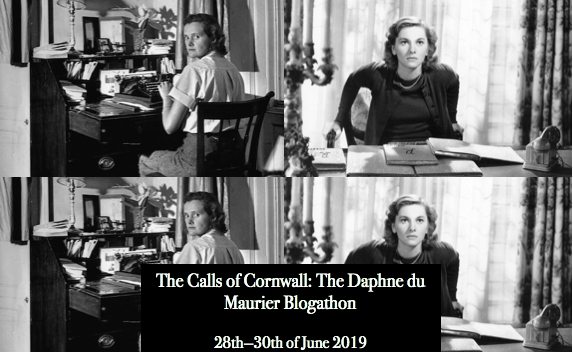I would like to say that an actor’s performance always trumps any preconceptions of mine about a character from a book I’ve read, that I can set aside my firm conviction that a character was blonde or tall or curvy. But the truth is, sometimes my assumptions ruin a performance for me, no matter how adept and nuanced the acting, no matter how much that performer captured, even enhanced the essence of a character. And for some reason, I am most frustrated when an average-looking book character suddenly becomes a knockout in the movie.
Sometimes, I know this reaction is foolish. But in other cases, the character’s looks were essential to the character/story. Hollywood often mistakes delicacy for sex appeal, or assumes we’re all afraid to see someone onscreen who isn’t dazzling. Here’s my list of the most annoying casting choices in terms of beauty, from least to most irritating:
Fourth Runner Up: Alan Ladd as Shane (1953)
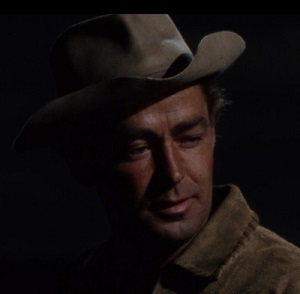
Shane is meant to be dark and mysterious. Alan Ladd could be a disturbing, haunted character, and he nails the cowboy’s reticence, humility, reserve. But I couldn’t see in him the forbidding man who managed to overcome my eighth-grade reluctance to read a western. When the teacher showed the film in class, I remember my fury: Come on. We’re not casting for New Kids on the Block here! (i.e., One Direction for you youngsters). Admittedly, the hairstyle and clothing designers didn’t help:
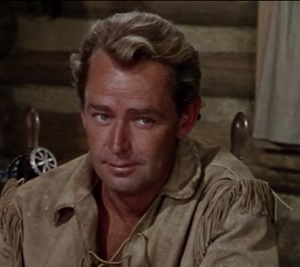
In the battle between him and the bad guy, played by Jack Palance, I am so distracted by that pretty face that I’m sure the gunman would be too.
This casting decision also tainted the almost-romance between him and Marian (Jean Arthur). In the book, she is so drawn by his strength of character that she can’t help developing feelings for him. But in this film, it was hard not to believe Marian just found him hotter than her husband, Joe (Van Heflin).
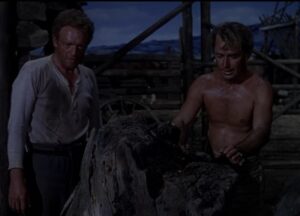
Third Runner Up: Lawrence Olivier as Darcy in Pride and Prejudice (1940)
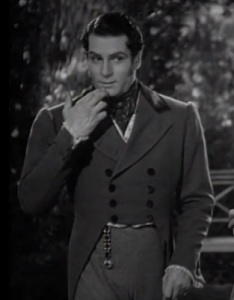
Lawrence Olivier is a good Maxim de Winter in Rebecca. The character is described as aristocratic and cold, like a painting of a fourteenth-century nobleman: “His face was arresting, sensitive, medieval in some strange explicable way….Could one but rob him of his English tweeds, and put him in black, with lace at his throat and wrists, he would stare down at us in our new world from a long distant past…” Olivier fits this description perfectly; in fact, he always seems most at home in period dramas.
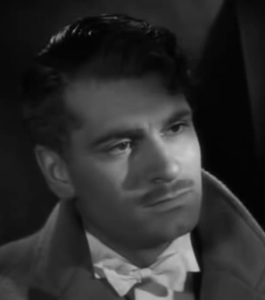
But when it comes to bringing to life the imposing Fitzwilliam Darcy, this short Englishman looks too much like a toy soldier to me. I don’t see him as gathering all eyes due to his “fine, tall person, handsome features, noble mien.” There needs to be some rugged in Darcy’s handsome, and delicate Olivier doesn’t cut it. I see this actor as the snob cutting down a girl for wearing thrift store clothes, not a man whose very presence could intimidate a woman as sassy as Elizabeth Bennett.
Second and First Runners Up: Joan Fontaine as Mrs. de Winter in Rebecca (1940) and Jane Eyre (1943)
Given, the narrator in Rebecca is a very humble sort, unlikely to recognize her own charms. And Fontaine’s looks are less sexy than those of the striking Anjelica Huston type I always imagined Rebecca to be. But she certainly doesn’t appear to be the mousy, flat-haired woman she’s described as in the book:
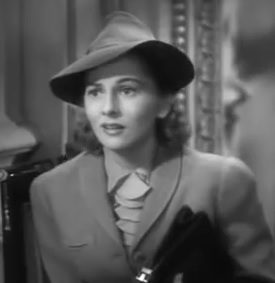
A girl this lovely surely would have gotten more attention from Mrs. Van Hopper’s friends. For the story to work, she needs to have been belittled and underestimated throughout her life, and I’m just not buying it. Does Fontaine capture the hesitancy and insecurity of the wife? Absolutely. Did the filmmakers try to tone down her considerable looks through makeup and hair style? Yes. Did I ever forget those looks enough to believe her as Mrs. de Winter? Not at all.
While the choice of Fontaine for Rebecca was a poor one, the decision to make her Jane Eyre was far worse. There’s no way a woman this ravishing would ever utter these famous lines to her love (bolding mine): “Do you think, because I am poor, obscure, plain and little, I am soulless and heartless? You think wrong! – I have as much soul as you, – and full as much heart! And if God had gifted me with some beauty and much wealth, I should have made it as hard for you to leave me, as it is now for me to leave you!”
Yeah, this woman looks plain:
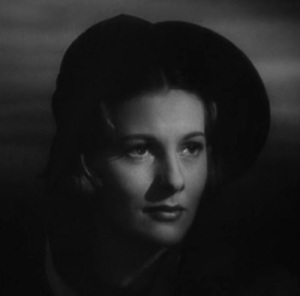
All of us less-than-beautiful little readers out there were thrilled to discover in Jane a heroine who wasn’t gorgeous but was strong-willed, proud, passionate. Too bad Hollywood doesn’t get that ordinary girls like their heroines to look like they do…..
Winner: Lana Turner as Marianne in Green Dolphin Street
Of all the silly selections I’ve listed, the most ludicrous by far is this one, especially since the film’s preview made a bold claim that it had not altered the source material:
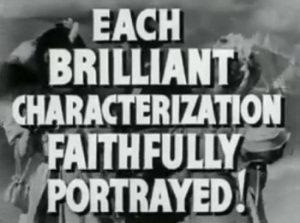
Let’s see if you agree with MGM’s statement. In the novel, two sisters, Marianne and Marguerite, fall for the same guy, William (Richard Hart). He adores Marguerite, the sweet, gentle beauty (Donna Reed).
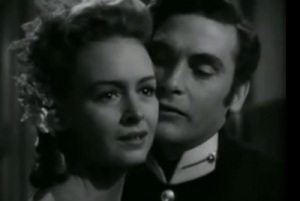
After moving to New Zealand, he sends for the sister he wants for his bride, but instead of writing the name of his girlfriend, Marguerite, in his proposal letter, he writes Marianne instead because he’s drunk and kind of an idiot. To his shock and dismay, he’s stuck with marrying his love’s prickly, smart, unattractive sibling, portrayed by this actress:
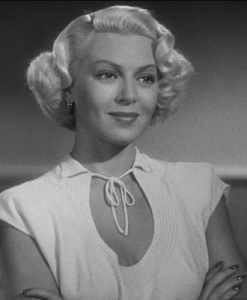
’Cause when I’m trying to come up with the gal all the boys choose girls-next-door over, Lana Turner is first on my list. Of course, the movie changed the plot a bit to make this casting choice look a bit less ridiculous. But since the reader likes Marianne in part because she’s so much more than she seems to outsiders, this va-va-voom choice doesn’t exactly convey novelist Elizabeth Goudge’s meaning.
And there you have it. My choices for actors and actresses far too pretty for their roles. What are yours?
